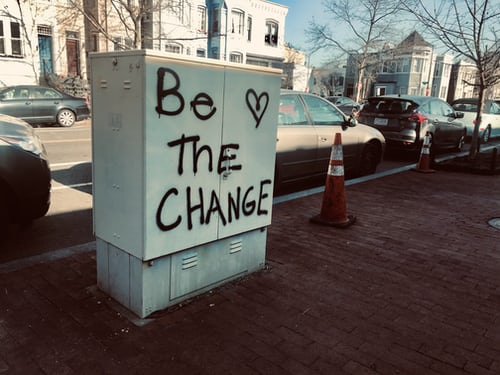Some Things Will Never Change
The triple evils are racism, economic exploitation, and militarism. MLK, jr.
And he went on to say, "The great problem and the great challenge facing mankind today is to get rid of war … We have left ourselves as a nation morally and politically isolated in the world."
Has anything changed?
Racism
It is still with us. FBI data released in October 2023, showed there were 11,643 reported hate crimes in 2022. Other datasets show the numbers are likely much higher. The Bureau of Justice Statistics, for example, reported U.S. residents experienced about 246,900 hate crime victimizations each year between 2005 and 2019. (USA today) Statistics show most hate crimes are based on bias against people of color.
Economic Exploitation
The wealth gap continues to grow. This is from the Federal Reserve:
Black Families’ Wealth
- Black families’ median wealth was $45,000 in 2022, growing 66% from 2019.
- As a group, Black families owned 2% of total household wealth despite making up 11% of households.
- Black families had 16 cents per dollar of white median wealth.
- The Black-white gap grew to $242,000—up $47,000 from 2019
Income inequality is a global issue with several causes, including historical racism, unequal land distribution, high inflation, and stagnant wages. As gaps increase thanks to crises like COVID-19, the world needs to take action in education, labor market policies, tax reforms, and higher wages. (various online sources)
War
Of immediate concern to Dr. King was the percentage of African Americans fighting in the Vietnam War. According to the Library of Congress, African Americans made up 31% of the ground combat troops in Vietnam, while African Americans made up 12% of the population. Most of those fighting on the ground in Vietnam were draftees. Today's army is all volunteer.
Big picture, there was concern funding for the war took funding away from social programs. In the 60's, the government spent on both the war and domestic projects. The economy over-heated and inflation went up. The increases in the cost of living affects the poor more.
Internationally, war affects women and children the most. It also displaces people, drives immigration, increases poverty and suffering, and causes famine.
There are more conflicts now than at any time since the Second World War. "Deputy Secretary-General Amina J. Mohammed, stating that peace — the United Nations’ raison d’être — “is now under grave threat”, observed that people’s sense of safety and security is at an all-time low in almost every country. Six out of seven worldwide are plagued by feelings of insecurity, the world is facing the highest number of violent conflicts since the Second World War and 2 billion people — a quarter of humanity — live in places affected by such conflict. Recalling the Secretary-General’s words that “the world is at a key inflection point in history,” she underscored the need to rethink efforts to achieve sustainable peace." (United Nations)
Can things change? Yes! Will it be easy? No! Change I'll come about if we address the root causes of war. What? King would refer you back to the first two Evils on his list. West Point offers more perspective: Bumbling leaders, ancient hatreds, intransigent ideologies, dire poverty, historic injustices, and a huge supply of weapons and impressionable young men.
The Harvard Business Review (Ross Kanter) came up with ten reasons people resist change. The application was for business change, but I think the same reasons apply to social change.
Loss of control
Excess uncertainty
Surprise! surprise!
Everything seems different
Loss of face
Concerns about competence
More work
Ripple effects
Past resentments
Sometimes the threat is real
Without change, there can be no progress. If there is no change, the number affected will climb beyond two billion. The world will be at war.

No comments:
Post a Comment